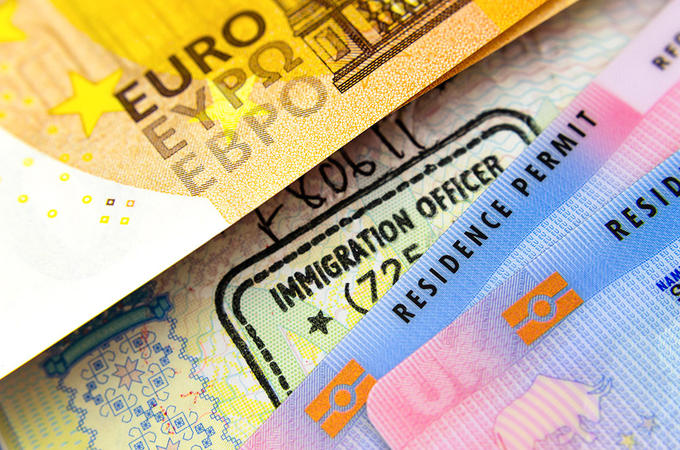Flight Centre’s Guide to Post-Brexit Travel
Travelling after Brexit is certainly different, and it's important for British travellers to know the rules when planning a holiday to Europe. Thankfully, our experts are working closely with our colleagues across the Channel, and will ensure you have all the relevant government information you need before your next holiday. That's why we've put together this easy-to-follow guide, so you can be aware of what's changed since the UK left the European Union – from new passports to data roaming charges:
- Can I travel to Europe after Brexit?
- What about travel to the Republic of Ireland?
- Where are the best places to travel after Brexit?
- Is my travel insurance still valid after Brexit?
- Will it be more expensive to travel after Brexit?
- What if I want to drive in Europe after Brexit?
- Can I take my pet to Europe?
- What will I need to travel to Europe after Brexit?

Can I travel to Europe after Brexit?
Of course! Travel to Europe is still strongly encouraged and, for stays of up to 90 days in a 180-day period, you still won’t need a visa. The changes to be aware of when travelling to Europe post-Brexit are things like dedicated EU passport lanes – it’s likely you’ll need to go through a ‘rest of the world’ queue unless UK is specified.
What about travel to the Republic of Ireland?
While the Republic of Ireland (ROI) is still part of the EU, it’s also part of the Common Travel Area (CTA), an arrangement between Ireland and the UK that allows citizens to travel freely between the two. In 2019 both the UK and Irish governments signed a new agreement reaffirming a commitment to continue free movement post-Brexit.

Where are the best places to travel after Brexit?
Anywhere! Some of our favourite post-Brexit destinations for 2022 include Portugal, Greece, Tenerife and Iceland, but wherever you go, UK travellers are still being welcomed with open arms.
Is my travel insurance valid after Brexit?
Assuming you have global cover, your travel insurance should still be valid. Be sure to check with your provider though, and make sure that your policy has appropriate healthcare and repatriation cover. If your European Health Insurance Card (EHIC) has expired, these are now being replaced with the GHIC (UK Global Health Insurance Card), but this may not cover all medical expenses and should not be seen as an alternative to travel insurance. Book your cover with Flight Centre and our partners here.

Will it be more expensive to travel after Brexit?
Generally speaking, the cost of flights and accommodation in Europe hasn’t increased as a result Brexit. British holidaymakers are set to face a €7pp fee for entering the Schengen Zone from the end of 2022. Talks about this visa waiver scheme are still underway, but it is thought your application will be valid for three years. While this is a new cost for European travel, it’s actually cheaper than the USA’s similar ESTA programme, and with a longer duration also. Countries like New Zealand and Canada also have similar schemes in place. It means that, whether you plan to visit Europe twice or 20 times in three years, the price stays the same.

What if I want to drive in Europe after Brexit?
When driving in Europe post-Brexit, you won’t need to apply for an International Driving Permit unless your licence was issued in Gibraltar, Guernsey, Jersey or the Isle of Man. If you’re taking your own car across the Channel you will need to get a UK car sticker to display in your window. For Blue Badge holders, your UK permit may still be accepted in certain countries, but do check before you travel.
Can I take my pet to Europe?
Historic pet passports are no longer valid for travel to the EU post-Brexit. Your pet will need to be microchipped, fully vaccinated, and you’ll need to obtain an Animal Health Certificate. For more advice, speak to your vet.

What will I need to travel to Europe after Brexit?
As mentioned above, if your EHIC has expired you’ll need to reapply for a GHIC. We also recommend ensuring your insurance has relevant healthcare and repatriation cover, and double-checking that your passport has at least six months’ validity and is less than 10 years old. If you need to renew your passport, you will receive a blue, new-style one. A visa waiver scheme, much like the US ESTA programme, is set to be in place by the end of 2022. Under this, British travellers would pay a nominal fee for the waiver, which would be valid for two or three years.
It's also crucial to check entry requirements for the country you are visiting, as border control may require you to provide information such as proof of a return or onward ticket or sufficient funds for travel. It is also always advisable to check whether a visa is needed.
Finally, for many providers, free EU roaming has come to an end, so check with your mobile provider to find out about any roaming charges and how you may be affected.

Are You Ready to Book Your Next European Holiday?
Your post-Brexit travel starts here! Check our some of our favourite European holidays below, or sign up to our newsletter for the latest Europe deals and travel announcements. To find out more about the changes to European travel in light of Brexit, please visit gov.uk or our Flight Centre help centre.








